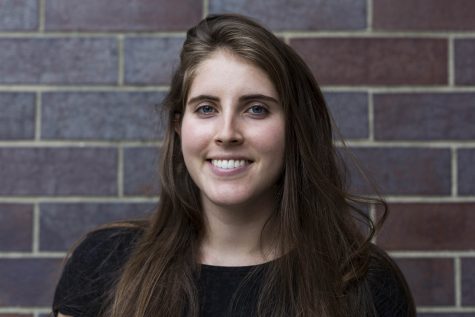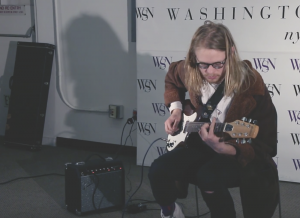Invertebrate Doesn’t Need a Spine to Stand Out
Steinhardt junior Ben Locke created the record label Invertebrate in his freshman dorm room in 2014. The independent force operates as jack-of-all trades record label, promotions and management company. Compared to industry giants like Warner Music Group, Invertebrate is miniscule; its employees are just Ben, his friend Greg Jakubik (Steinhardt ‘18) and, to use his words, “a big box of stuff, and a file folder of some forms.” While the company’s size is intimate, it still manages to hold its own, even in as vast a music city as New York. Locke sat down with WSN recently to talk about major labels, the challenges and benefits of a label his size and his hopes for the future.
WSN: How big is Invertebrate? How many bands do you have on your label?
Ben Locke: Right now we have about five bands on the label’s side. We have Field Trip, who released their first EP last year, CVS at Night, who we just signed, this band Your Dog that’s based in the Bronx, this act Goodman and Psymon Spine, who are one of our management clients.
WSN: How do you feel about the size of your label?
BL: We’re obviously super small, but nowadays for an artist to sign to a label they have to ask themselves the question, “What can you do for me that I can’t do for myself?” And I think that’s where our management and promotions arm comes in. We are able to get artists shows and guide their career in ways that an artist self-releasing through Bandcamp wouldn’t be able to do on their own. So, that’s the pitch we use to solicit people. But, I have no problem with my size. Like most labels, I hope to get bigger.
WSN: Do you hope to grow into a major label?
BL: I want to bring music to as many people as possible. That’s my goal. So, I have no allegiance to a certain “being-too-big-to-be-cool” type of mentality.
WSN: How do you feel about major labels?
BL: They’re good. You know, it’s the three big ones — Warner, Universal and Sony. I interned at Universal. It’s cool. They’re doing great things. They’re amazing companies. But, I think with more of the niche labels like myself you have more of a hands-on aspect that I think a lot of artists want and need. You see a lot of artists who aren’t on these big labels, who are on much smaller niche-type things getting lots of success through other outlets such as touring and online presence.
WSN: So besides the benefits of a small label, do you think there are challenges?
BL: Of course. The biggest challenge is getting people to listen to the music, which is really hard especially with social media and the crazy 24-hour news cycle we live in. Songs just come and go, and it’s really hard to have something that sticks to people. So I think definitely a big thing with our releases is we form a schedule. We strategically will release things at a certain time to generate the most interest in them. But I definitely think the hardest thing is notoriety, just making sure people hear about the release.
WSN: What other types of bands do you want to get on your label? Do you want them to be New
York based?
BL: Some are a couple years out of college. I mean, they’re all young. But, not necessarily. Our mentality is that if the music is good and if we think that we could benefit their career, that’s where we see ourselves coming in. Obviously, it’s hard for us to work with a band that’s not based in New York, but we’d definitely be open to it.
Email Gilchrist Green at [email protected].
Check out the rest of the Arts Issue here.

Gil Green is currently the Music Editor for the Washington Square News. She is a Junior in Gallatin studying Music Journalism. She likes carrots and Tia...
Anna Letson is the Multimedia Editor at the Washington Square News. She is a junior in Gallatin and finally ready for you to ask her about her concentration....

























































































































































